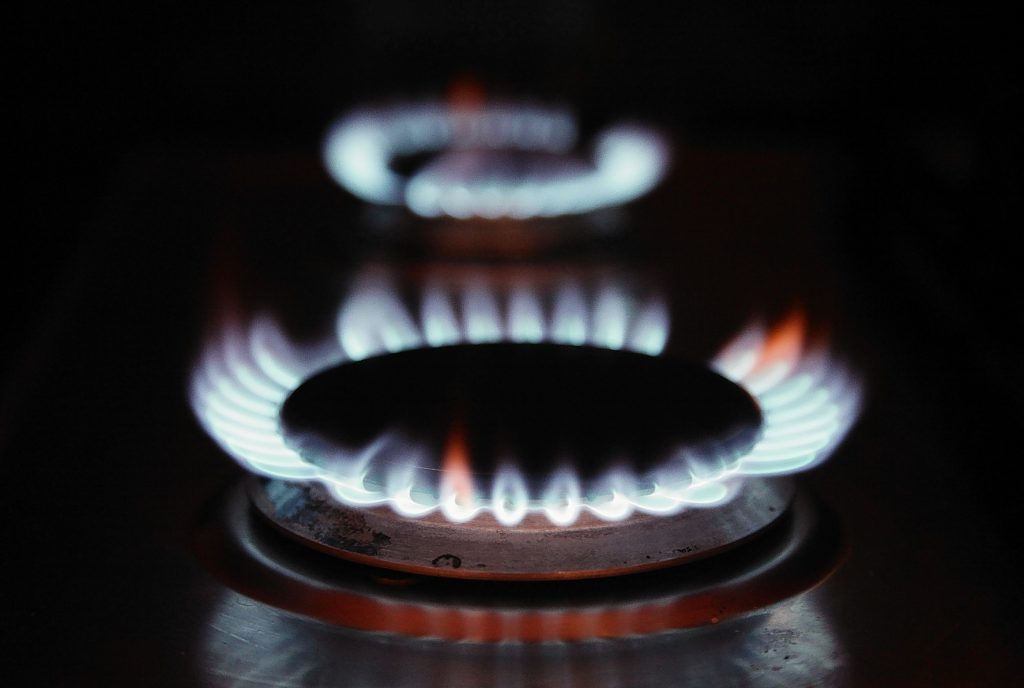
One of the biggest threats facing the natural gas industry is inside the house.
Long heralded as an ideal transition from heating oil, natural gas is now being pushed out of homes and getting shoved aside as a fossil-fuel relic. The shift underscores the existential crisis gas producers may confront as governments battle climate change and wind and solar costs plunge.
In New York State, where pipelines face fierce opposition, a utility slapped a moratorium on new residential hookups in Westchester County. The Netherlands, once among Europe’s leading gas producers, is outlawing new service connections permanently. Now groups in California and the U.K. are pressing for the same.
“We are headed toward electrifying everything,” Barry Perry, chief executive officer of the North American utility owner Fortis Inc., said at the S&P Power & Gas conference in New York this week. And that, he noted, is coming from someone whose company is in the business of distributing gas.
The resistance to gas heating comes as the fracking boom has made the fuel abundant and relatively cheap. Global consumption is forecast to surge 17 percent by 2030, according to the U.S. Energy Information Administration. Residential use accounts for about 15 percent of demand. Eliminating it would eat into growth, said Jurgen Weiss, a principal with Brattle Group, a consultancy.
“Gas demand growth has to slow and ultimately turn negative to meet carbon goals,” Weiss said.
But Daphne Magnuson, a spokeswoman for the Natural Gas Supply Association in Washington D.C., said demand for the fuel remains strong worldwide, particularly in Asia. “It’s bad policy for nations or states to forbid new natural gas hookups for political reasons,” she said.
A sweeping conversion to electric heat would be neither easy nor cheap, said Nareg Terzian, a spokesman for the International Association of Oil & Gas Producers in Brussels. “The problem with full electrification is that it sounds great in principle — but it’s very difficult to implement,” he said.
Nonetheless, the U.K.’s Committee on Climate Change, an independent adviser to the government, released a report last month calling for a ban on new homes being connected to the gas grid by 2025.
In the U.S., a coalition of California cities, utilities and environmentalists wants to get rid of natural gas entirely in homes and buildings. Sempra Energy’s natural gas utility, which is part of a separate group opposing the effort, on Wednesday asked regulators for permission to get 20 percent of its gas from so called renewable sources by 2030, including dairy farms and wastewater plants.
New Front
Furnaces and boilers are a key source of greenhouse gases, accounting for one of the U.S.’s largest areas of emissions growth in 2018, according to the Rhodium Group. For years, switching to electric heat meant shifting those emissions to power plants that burn coal or gas. With wind and solar, electricity has become cleaner. That’s opened a new front in the push to end fossil fuels. The Sierra Club is in talks with officials in more than a dozen states about electrifying buildings.
“Now we can make an economic argument that we never could make before — and that’s just completely changed the conversation,” Sierra Club Executive Director Michael Brune said in an interview.
New York hasn’t banned gas from homes. In fact, it’s urged homeowners to switch from heating oil to gas. But by refusing to issue a permit to Williams Cos. to build a pipeline to bring gas to the Northeast from the Marcellus basin, the state has pinched the region’s supply. That’s led Consolidated Edison Inc. to issue a moratorium on new residential gas hookups. Massachusetts utilities have done the same.
“Where we sit today, gas is lower in carbon than heating oil,” said Alicia Barton, chief executive officer and president of the New York State Energy Research and Development Authority. “This is not the long-term solution.”
Utilities are urging customers to cut back, too. ConEd has instituted a program offering incentives to consumers to lower thermostats on cold days to cope with limited gas supplies. Sempra Energy, which owns Southern California Gas Co., has a similar program.
Dutch Ambition
Few, if any, nations have been as ambitious to phase out gas as the Netherlands, which has decreased domestic production of the fuel 50 percent in the last five years. That comes as the Dutch have set ambitious climate targets and as Groningen, a giant gas field in the north of the country, is being gradually shut down after earthquakes in the area damaged buildings.
“If you want to meet long-term climate action goals, you have to deal with combustion of fuels in buildings,” said Timothy O’Connor, a senior director for the Environmental Defense Fund. “There’s really no way around it.”
Recommended for you
